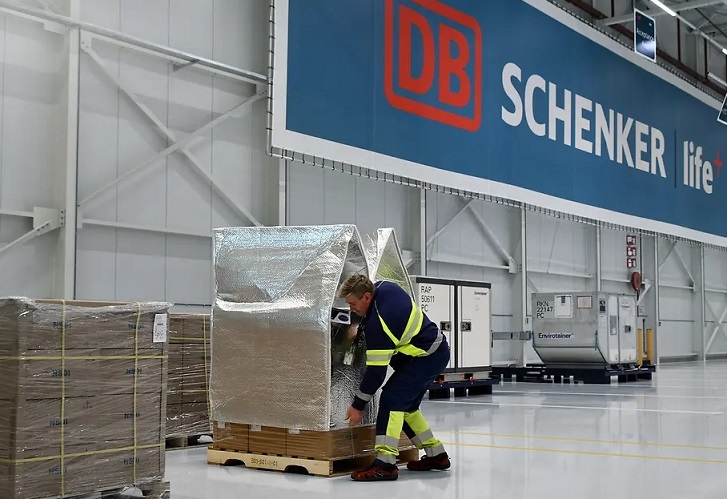DB Schenker widens GDP certification to support pharma shipments
10 / 04 / 2024

Photo: DB Schenker
DB Schenker is supporting its pharma business with increased Good Distribution Practice (GDP) compliance.
The company now has certifications in accordance with GDP standards for 157 of its stations. These certifications cover key markets in the Americas, Europe and Asia for the global trade of medical goods.
“By achieving this milestone, DB Schenker can now cover 80% of the world’s healthcare flows with their recent certificates, making it one of the world’s largest GDP-compliant logistics networks. DB Schenker can now even better meet the evolving needs of the global pharmaceutical industry,” said DB Schenker.
Within the next twelve months, the global logistics service provider plans to certify over 180 of its stations to be able to organise and manage GDP-compliant logistics.
Veronique Dameme, head of global vertical market healthcare at DB Schenker. said: “At the end of every healthcare supply chain there is a patient. That’s why we ensure that medical products are stored and distributed in accordance with the highest standards.
“The successful GDP certification of our facilities marks a significant milestone on our roadmap and shows our ongoing pursuit of excellence in pharmaceutical logistics.”
Healthcare is a highly regulated industry governed by various guidelines, making GDP compliance critical. With Good Distribution Practice, DB Schenker follows a guideline that ensures that the integrity and quality of pharmaceutical products is maintained throughout the entire supply chain process.
DB Schenker’s internal Global Healthcare Quality Management System addresses the Good Distribution Practices for medicinal products for human and veterinary use and related active substances set out by the European Union (EU) and the World Health Organization (WHO). DB Schenker ensures these requirements are complied with through the internal Directive Healthcare Quality Management, which forms the basis of DB SCHENKER | life+.
The company said when it first started the implementation process for certification, the first goal was to define a global standard valid for all transport modes. This made the GDP certificate suitable. The certification ensures that the process, infrastructure, and staffing comply with the requirements of the pharmaceutical industry, using this ideal approach across all business units.
After a station is awarded certification following successful completion of an internal certification process, a risk-based re-audit is performed based on continuously measured KPIs. This is repeated at least every three years to ensure the highest quality is maintained.














